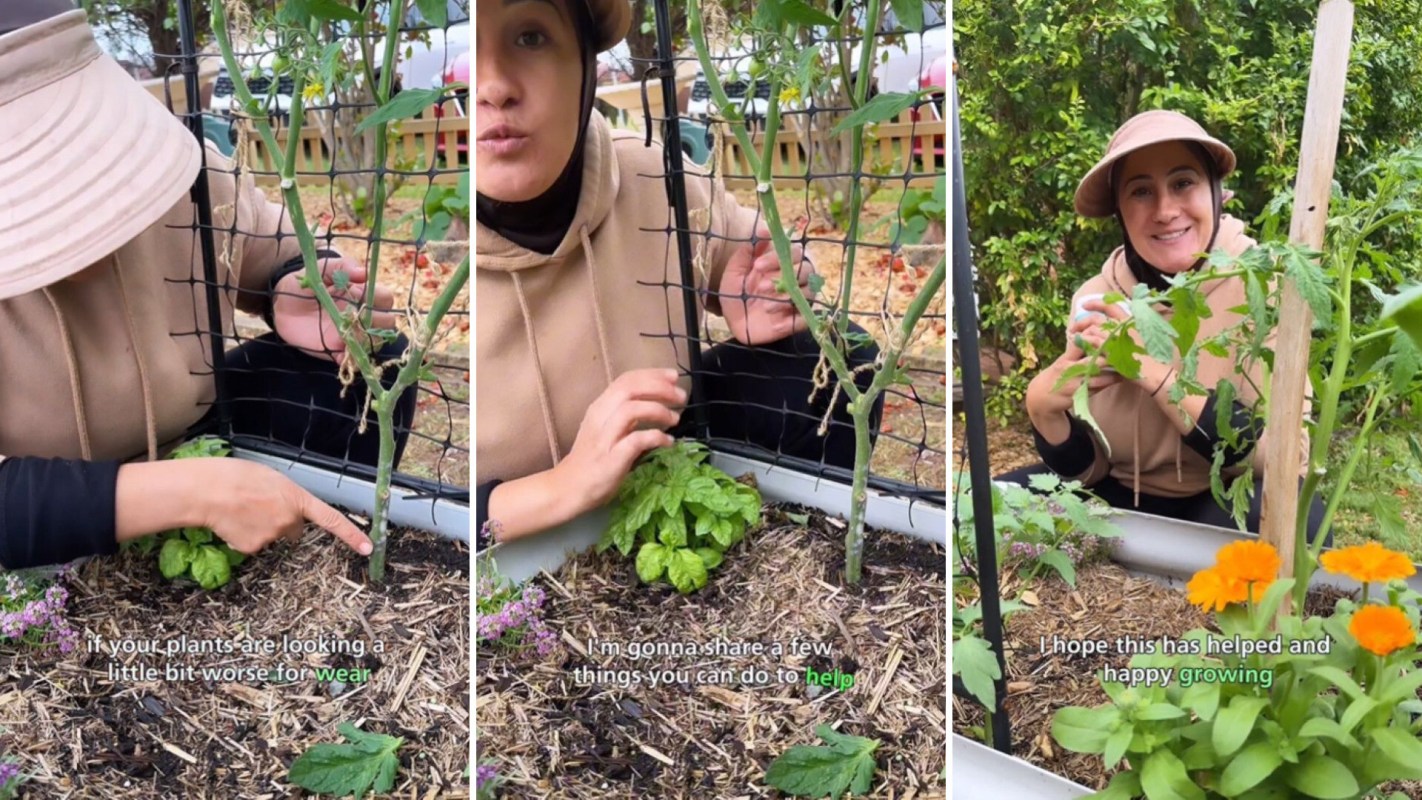Mold and mildew are two substances known for having an exceedingly high "yuck" reaction, especially when you find it growing on your food. However, one Instagrammer is here to save the day with a hack to prevent and eliminate mildew in your garden.
The scoop
Sahar (@sahars_suburban_garden) is an Instagram user who shares her organic gardening experiences as well as gardening tips and tricks.
She cautions users to check for mildew. "If your plants look a little bit worse for wear, and you're noticing a white, fuzzy substance on your stem or your leaves, welcome to powdery mildew," Sahar explains in her video.
Prevention and elimination of mildew is important to the success of your garden — the mold weakens the structure of the plant, causing overall stress, and lowers photosynthesis and crop yield.
To prevent or help get rid of mildew, airflow is the name of the game.
Sahar recommends giving plants as much space as possible, pruning them so they're not touching the ground or each other, and trying to keep the leaves dry when watering. All of this will reduce the dampness surrounding the leaves, lowering mildew levels.
Sahar also recommends some homemade remedies: mix equal parts milk and water, or mix a tablespoon of baking soda with a few drops of dish soap and a gallon of water. Both of these mixtures can then be sprayed on the plants as a remedy.
How it's helping
Keeping your plants strong and healthy is vital to having a good crop or a beautiful garden if you're growing flowers — both of which can save you money.
U.S. News reports that first impressions are incredibly important when selling a house, and flowers can help to create a positive one. So when you put your house on the market, your healthy flower garden could help sell it faster.
Plus, if you grow your produce alongside or instead of flowers, you'll save your wallet and the environment. A package of tomato seeds costs $6 and will give you tomatoes to last an entire season without any extra pollution from packaging or transportation.
Produce travels an average of 1,500 miles from the farm to your plate, and the vehicles transporting it create air pollution. This is part of the reason that the agricultural industry accounts for 11% of the world's carbon emissions.
For more tips on how to grow hearty plants, check out this article to reduce the chance of disease in tomatoes and this one to keep squirrels and birds away from your garden.
What everyone's saying
Instagram users were grateful for the informative video. "This is very helpful," wrote one user,
"Thank you for your advice, I'll be putting it into practice," said another.
A third user wrote, "Great homemade options!"
Join our free newsletter for easy tips to save more, waste less, and help yourself while helping the planet.









